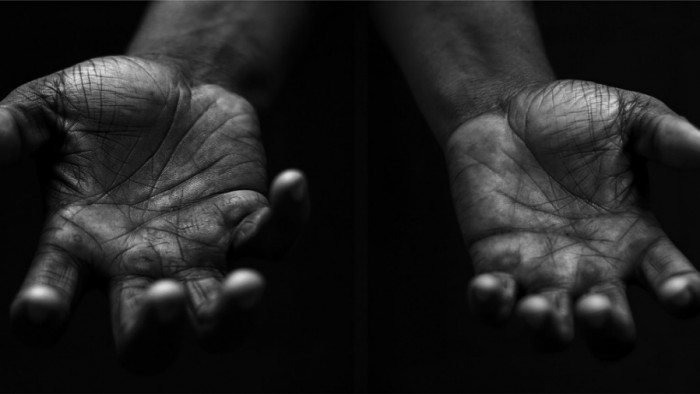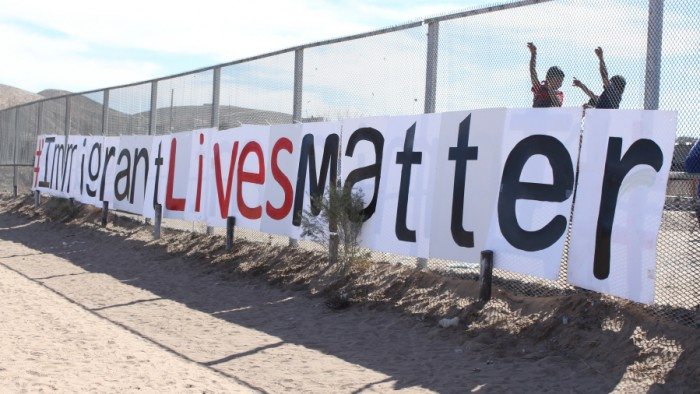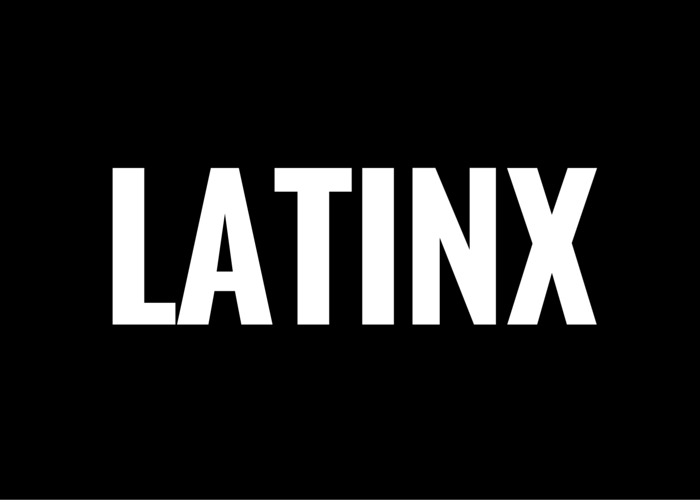

(Public Domain)
Black and White: Denial of Latinx Oppression
Identity politics in the United States centers on relations between the African-American community and the powers that be; a history filled with slavery, lynching, Jim Crow, and of course, disproportional police shootings. This treacherous history does not exist in a vacuum; it appears so, because it is the most reported.
How can one attempt to compare, and even quantify, the struggles of the two most prominent minorities in the United States? It is reprehensible to connect the conflicts of these communities, as it belittles them.
With this being said, Latinx oppression does not receive the same attention. This is poignant when one considers the lack of media attention paid to Afro-Latinx identity. To be blunt, the struggles of the Latinx community do not produce the same “media success” as the portrayal of hardships in the African-American community.
Perhaps it is due to guilt over the state-sponsored mechanisms of oppression, or even, resentment and outright hatred of the expression of black voices. Both are possible motives, but why does this disqualify the oppression of Latinxs? Our people suffer, too.
But this lack of coverage reveals much more about the inner workings of race relations in the United States. Take for example, the coverage of deadly shootings by law enforcement. The majority of the media obsession with broadcasting the plight of minorities of color focuses on the murders of African-Americans. The obscene amount of media dedicated to these events is not because Latinx lives matter less, no, but because white America has a well-documented obsession with the unjust murder of African-Americans.
The media makes a blatant choice when it decides not to report the shootings that affect our communities. The status of the people shot should not be questioned. Be they an American citizen (or citizen of Mexico…), or an immigrant, documented or undocumented, a life is still lost. A life taken deserves answers.


Immigrant families gather at the border fence in Sunland Park, New Mexico (Maria Esquinca)
“The Children of Immigrants”
The primary reason our struggles are not as prominent in the mainstream consciousness are the direct result of the perception of the Latinx community as a whole. It is almost unfathomable that there are Latinxs who are born within the domestic borders of the United States. To many, we are all just naturalized citizens.
It is an unavoidable part of our reality as a people that we are identified as a collective whole. In a country where our agency is stripped from our being, it is almost impossible to escape this labeling. However, our culture is too diverse and rich to attach a single moniker. These negative perceptions of our people lead to an expansion of national pride, which in itself leads to harmful factionalization.
These definitions, essentialist in nature, are ill-informed and hell-bent on extending and preserving well-constructed ideas of racial superiority. Therefore, the more we typecast ourselves, the easier it becomes for non-Latinxs to do so. A person of Latinx heritage must then adhere to antiquated perceptions of our identity imposed on us by powers other than ourselves, to be considered a “true Latinx.”
This essentialism is ugly. It deprives our culture of the diversity necessary to thrive and function. The characterization of Latinx identity is so broad, it has welcomed the auspices of branding by the American elite.
Our cultural identity is so broad, it confines us. Few people recognize us, our presence barely sewn onto the fabric of the American consciousness.
As we are confined we must placate to the whims of non-Latinx America. Our oppression, therefore, takes on new forms that most do not recognize. Our names, our customs, our language, are changed to better suit the comfort and tastes of those who define us.
The oppression takes many forms, but one thing is certain, at their core all forms are merciless. This is not an exaggeration. Our culture is the embodiment of the “other,” truncated by the fact we are seen as the children of immigrants. The hypocrisy of such perceptions is laughable, as the country that claims to be a nation of immigrants, does not accept us, or recognize the importance of immigration to its prolonged prominence.
Our citizenship is always questioned, but we ourselves are not allowed to voice our objections. Many Latinx are born and raised in the United States to parents who themselves were born here. For generations occupying lands that now find themselves within the territorial purviews of the United States. As Eva Longoria so eloquently said “My family never crossed a border; the border crossed us.”
Producing a Counter-Narrative Against Established Perceptions
The same forces that attempt to rid us of our diversity relish in the exotic nature of our being. Dreaming of the beaches of Acapulco, with a blatant disregard of the violence. Deifying “narco” culture, once again, with no regard for the real-world consequences.


The perceptions of our people are not our fault. False narratives are created that either glorify, or vilify us on a whim. If we perpetuate the negative, it is our “backwardness” and lack of assimilation that is at fault; not the system that has subdued us. The positive, the acts of kindness, success, receive a full-throated endorsement that the system is working at assimilating us.
Acculturation, the give and take between cultures, does not exist. What we give is never well-received, it is taken, appropriated and repurposed to become a trend. The unilateral relationship continues, and will continue, to serve a purpose; the rebranding of our culture for the sake of further oppression. This again, refers to the merciless nature of the oppressive actors.
As our culture is taken, retooled, and enjoyed by the masses, we lose our agency; what makes us truly unique. A collective identity strips us of all this, with appropriation serving as the social mechanism that sees our struggles belittled. The more our culture seeps into the mainstream, the harder it becomes for us to clamor for attention, to demand that our voices be heard.
So, how do we overcome? Our diversity is our greatest weapon. We have the ability to showcase multiple cultures, to overcome the stigma of the construction of a collective characterization of Latinx identity. Dominican, Boricua, Cuban, Chicano, and many more. We have the power to change the homogeneity that is the current definition of our identity.
We must keep pushing, for there will be push-back from those who insist their definition of our people is correct. No matter, this defiance is merely a coping mechanism meant to preserve white hegemony, and the stranglehold the American elite have over the perception of minorities of color.
Our diversity will lead to our recognition. Our voices cannot, and will not be silenced. Our oppression is systemic, it deprives us of our identity, to live as we see ourselves. The system is changing, however, and we are at the fore. Rising up against oppressive forces is in our blood, it is what drives us. Cambiar el sistema. Prefiero morir de pie que vivir de las rodillas. ¡Viva la revolución!
***
Nathaniel Hernandez is a recent graduate of the University of Maine-Orono with a B.A. in Anthropology. He is a new contributor to Latino Rebels. You can can follow him on Twitter @saint_nate12, on Medium and on BeVisible.


